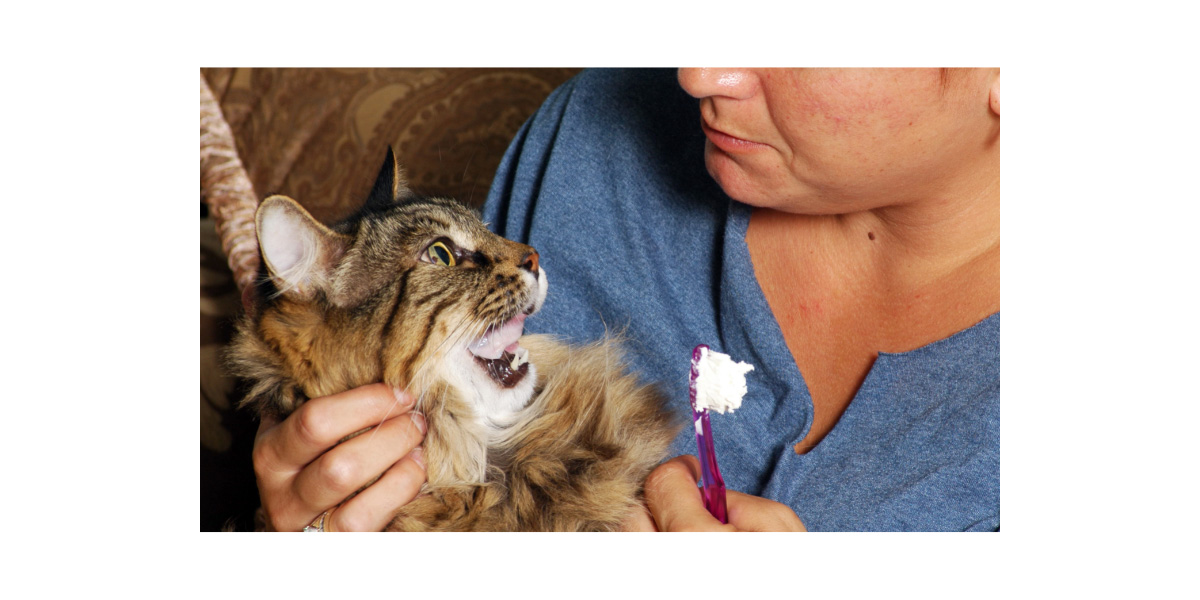
While cats in the wild clean their teeth by gnawing on the bones and fur of their prey, our modern house cats depend on us for dental care. Up to 90% of cats develop gum disease by the time they’re four years old. They need our help not only to keep their mouths clean and fresh, but also to protect their overall health and well-being.
Oral bacteria from infected gums spreads to all organs of the body, contributing to chronic kidney failure and liver disease. Bacteria originating from the mouth has even been linked to heart disease. As difficult as brushing can be, it’s not nearly as difficult as managing long-term health issues.
What If My Cat Won’t Let Me Brush Their Teeth?
Regular brushing is the best way to combat plaque and prevent the buildup of tartar. During brushing, you can also check for swollen gums, bad breath, loose teeth, and other dental issues.
If your cat won’t tolerate brushing, you can still work on getting them used to having your fingers near their mouth. Will your cat let you take a peek at some of their teeth? Can they lick feline toothpaste off a brush? Getting even a few licks of poultry-flavored enzymatic toothpaste can help neutralize oral bacteria.
Some cats hate brushing with a toothbrush but will tolerate a gentle cleaning with a fingertip wrapped in gauze. Vetradent Dental Wipes are also a good alternative to using a toothbrush.
Can Food Clean My Cat’s Teeth?
Dry cat foods, even those that claim to clean your cat’s teeth, do not provide adequate protection against dental disease. What’s more, cats do not drink enough water to make up for the lack of moisture in a dry kibble diet.
Dental treats like CET Intellident Cat Bites have a specially designed shape and texture to help control tartar through your cat’s chewing action. They can help clean teeth, but are best used in conjunction with other forms of dental care.
A water additive like Be Fresh Solution cleans teeth every time your cat takes a drink, though it’s tasteless and safe to use daily. It does not offer any scrubbing action, so it should be used in conjunction with brushing and/or dental treats.
When Do Cats Need Professional Dental Cleaning?
While you can control plaque on a day-to-day basis with at-home dental care, once clear plaque hardens into yellow tartar, it becomes nearly impossible to remove at home. You will need to schedule a dental cleaning, performed under anesthesia, to have plaque removed. Your cat should have an x-ray before every dental cleaning to check for issues under the gumline.
Professional cleanings are recommended for most cats every 1-2 years. During a cleaning, your cat is examined for signs of oral cancer, tooth decay, gum disease, and tartar under the gumline, all of which may not be easily detectable at a regular check-up.
































